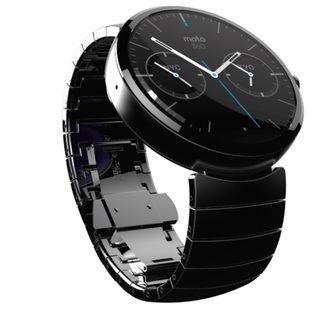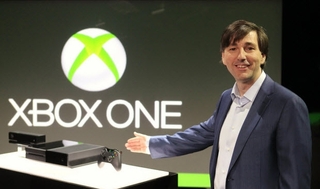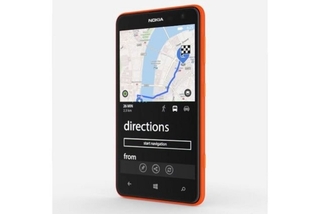Benchmarking Europe with Japan and the US
Published:
17 April 2001 y., Tuesday
Durlacher's recent report - UMTS Report: An investment perspective - identifies the global mobile wireless market as three distinct types of markets:
Mobile operator driven
Internet-driven
Technology-driven
Mobile operator-driven markets are characterized by countries with low internet penetration but high mobile services penetration (e.g. Japan). Due to the dynamics of the economies in these countries, network operators can influence content, and employ a closed portal strategy.
Internet-driven markets are composed of markets with high penetration of internet and relatively low penetration of mobile services. ISPs, portals, application developers and content providers who have matured in the internet world are dominant players in this market. The US is a good example of this type of market.
In Europe the mobile and internet markets are diverse. Northern Europe is a heavy user of both mobile communications and fixed internet access. In Finland for example, there is mobile penetration rate of 75% and fixed line internet access of 50%, according to Durlacher. Countries such as Germany, the UK and the Netherlands are quickly catching up to the Scandinavian countries in terms of both internet and mobile penetration. Southern European countries have high mobile penetration, but have low fixed internet access penetration. Durlacher reports that Italy, for example, had 12% penetration of fixed line internet and 65% penetration of mobile phones in late 2000.
NTT DoCoMo's position in Japan is unique in that it is the dominant operator in the mobile market and is well protected from entry of newcomers. Its dominant position has enabled the company to dictate the development of the technology enablers for the I-mode concept. This includes networks, terminals and applications. While NTT DoCoMo controls 59% of the mobile market, KDDI and J-Phone, two other large mobile operators in Japan, have advanced quickly into the mobile space. Japan leads the world in mobile data and internet services and will be the test bed for 3G services.
While the North American market leads the world in internet adoption and e-commerce, it lags when it comes to the mobile sector. The multiple technology standards and coverage issues have held back quality and service levels in comparison with leading regions in Europe. 3G license auctions have been postponed to 2002, which will delay the commencement of next-generation mobile services in the US. Another significant factor holding back the development of mobile wireless in the US is the fact that mobile operators employ the "Calling Party Pays" system.
Šaltinis:
emarketer.com
Copying, publishing, announcing any information from the News.lt portal without written permission of News.lt editorial office is prohibited.
The most popular articles
Software company announced new structure_ of it_s business.
more »
 Moto 360, Motorola's upcoming entry into the smartwatch industry, is rumored to be preparing for a July release.
more »
Moto 360, Motorola's upcoming entry into the smartwatch industry, is rumored to be preparing for a July release.
more »
 Unisys Corporation has announced Choreographer, a cloud management platform designed to direct and optimise key IT services and processes. Choreographer automates the lifecycle management of data centre and public infrastructure resources to help more efficiently deploy applications in both private and public cloud environments.
more »
Unisys Corporation has announced Choreographer, a cloud management platform designed to direct and optimise key IT services and processes. Choreographer automates the lifecycle management of data centre and public infrastructure resources to help more efficiently deploy applications in both private and public cloud environments.
more »
 This February 24-27, the world’s largest mobile technology exhibition “Mobile World Congress 2014” shall take place in Barcelona.
more »
This February 24-27, the world’s largest mobile technology exhibition “Mobile World Congress 2014” shall take place in Barcelona.
more »
 Unisys Corporation reported a third-quarter 2013 net loss of $11.6 million, or a loss of 26 cents per diluted share, which included $22.6 million of pension expense. In the third quarter of 2012, the company reported a net loss of $12.4 million, or a loss of 28 cents per diluted share, which included $28.9 million of pension expense and $23.1 million of debt reduction charges.
more »
Unisys Corporation reported a third-quarter 2013 net loss of $11.6 million, or a loss of 26 cents per diluted share, which included $22.6 million of pension expense. In the third quarter of 2012, the company reported a net loss of $12.4 million, or a loss of 28 cents per diluted share, which included $28.9 million of pension expense and $23.1 million of debt reduction charges.
more »
 Akamai Technologies, Inc. (NASDAQ: AKAM), the leading provider of cloud services for delivering, optimizing and securing online content and business applications, today announced plans for future integration of Akamai Unified Performance technology into the Cisco® ISR-AX series of routers.
more »
Akamai Technologies, Inc. (NASDAQ: AKAM), the leading provider of cloud services for delivering, optimizing and securing online content and business applications, today announced plans for future integration of Akamai Unified Performance technology into the Cisco® ISR-AX series of routers.
more »
 Microsoft is to allow independent games developers to self-publish on its Xbox One games console. "Indies" will be able to create their own games, publish to the Xbox when they like, and set their own pricing, the computer giant has confirmed.
more »
Microsoft is to allow independent games developers to self-publish on its Xbox One games console. "Indies" will be able to create their own games, publish to the Xbox when they like, and set their own pricing, the computer giant has confirmed.
more »
 Nokia has unveiled the Lumia 625, the largest Lumia Windows Phone yet, with a 4.7-inch screen and 4G.
more »
Nokia has unveiled the Lumia 625, the largest Lumia Windows Phone yet, with a 4.7-inch screen and 4G.
more »
 Unisys Corporation (NYSE: UIS) announced the availability of its Unisys Stealth Solution for Amazon Web Services (AWS) designed to enhance security for clients moving data into the cloud.
more »
Unisys Corporation (NYSE: UIS) announced the availability of its Unisys Stealth Solution for Amazon Web Services (AWS) designed to enhance security for clients moving data into the cloud.
more »
 The Open IPTV Forum (OIPF) has published a profile of HTML5, CSS, DOM3 and other related web technologies aimed at connected TV services and devices that implement a browser-based application environment.
more »
The Open IPTV Forum (OIPF) has published a profile of HTML5, CSS, DOM3 and other related web technologies aimed at connected TV services and devices that implement a browser-based application environment.
more »
 According to new research conducted by Unisys Corporation (NYSE: UIS), a majority of Americans are concerned about data breaches involving large organizations, but are evenly mixed on whether legislation should require private businesses to share cyber attack information with the government.
more »
According to new research conducted by Unisys Corporation (NYSE: UIS), a majority of Americans are concerned about data breaches involving large organizations, but are evenly mixed on whether legislation should require private businesses to share cyber attack information with the government.
more »